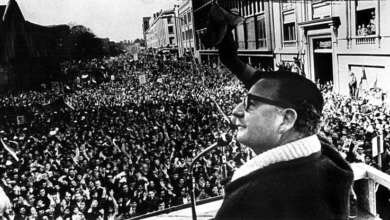 Wall signs express opposition to the TLC — the Spanish translation of “Free trade agreement” |
Although the other participating nations have formally ratified the agreement, in Costa Rica a popular opposition movement has forced the ratification process out of the legislature and into a national referendum.
After massive demonstrations and nationwide strikes calling for the rejection of the agreement, on April 15 the Supreme Elections Tribunal ruled in favor of referendum organizers. The ruling required the opposition movement to collect 132,000 signatures for the referendum to take place.
The day after the tribunal’s ruling, President Oscar Arias—who had previously fought to keep the ratification process safely in the legislature—issued his own call for the referendum. This was nothing but a political maneuver. The presidential decree circumvents the petition process, which in itself would allow his opponents to build a base of activity against CAFTA. In addition, the petition process would likely have delayed the passing of the pact, which has a deadline for ratification of March 2008. The referendum date is set for September 23.
Costa Rica has the largest economy in the region. For decades its government has served as a key ally of the imperialist interests of the United States, having participated in the dirty war against the Sandinistas and in the “coalition of the willing” that invaded Iraq in 2003. Across Latin America, opposition to imperialism and U.S.-backed free trade agreements has manifested in powerful social movements. Now, it appears that movement has broken into Costa Rica.






